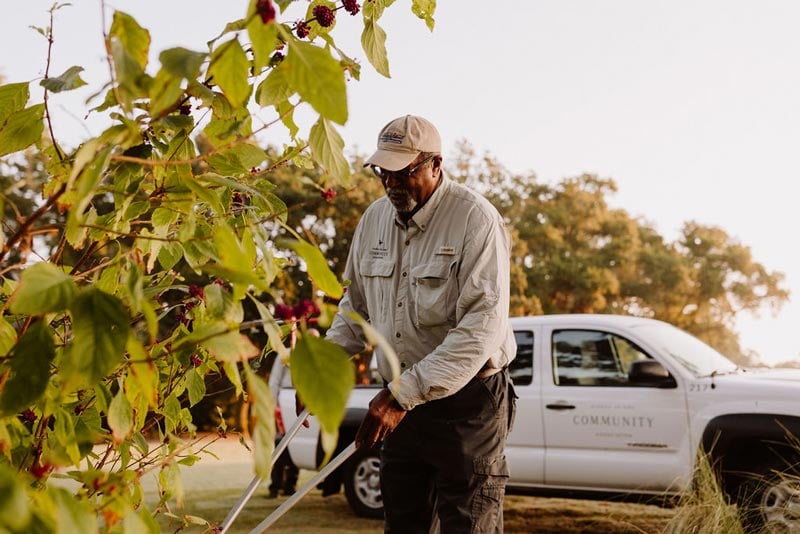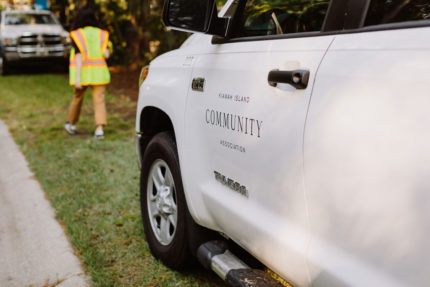Jun
01
2011
From The Blog
How Kiawah Won the 2012 PGA Championship
It began with the 1991 Ryder Cup. Shortly after purchasing the resort amenities from Kiawah Resort Associates in 1989, Landmark Land Company improbably persuaded the PGA of America and its counterpart in Europe to move the 1991 Ryder Cup from a desert course in Palm Springs to one yet to be designed and built on Kiawah.
The move turned out to be mutually beneficial to Kiawah and the PGA. Perfect fall weather, a challenging course overlooking the marvelous beach, nearly 20 hours of television coverage, and the high drama of a come-from-behind finish for the U.S. that went down to the last stroke on the last hole as daylight waned, created lasting international interest in both Kiawah and major golf.
In the last 20 years, partly due to the interest created by the 1991 Ryder Cup, as well as “big name” players such as Tiger Woods and Phil Mickelson, golf has grown as a spectator sport, and the major tournaments have become bigger and more complex. “At that time, the Ryder Cup was important, but not the major event it is now. The event at the Ocean Course increased public awareness about how intense a golf tournament could be,” says community planner Mark Permar, who has lived on Kiawah for more than 30 years and who helped prepare the bid presentation for next year’s PGA championship tournament on Kiawah. “They wouldn’t think of risking a major event like that today on a course that isn’t built, and when they don’t know how it plays.”
After Hurricane Hugo hit the Charleston area as a Category 4 storm in the fall of 1989, ironically as that year’s Ryder Cup was underway in England, many people doubted that Kiawah could build a course and be prepared for a tournament. “But we pulled it off,” says Buddy Darby, CEO of Kiawah Development Partners (KDP). “We were the darlings for a while, and that began a relationship with Jim Awtrey,” who was PGA Chief Executive Officer from 1988 until 2006.
Awtrey strongly supported holding the 2012 championship on Kiawah. “It might not have happened without Jim’s support,” Buddy continues. “He was already ‘lame duck,’ and the PGA was doing a search for his replacement. He didn’t want to make a decision that went beyond his tenure, so he helped to convince others.” Awtrey retired shortly after that decision was announced.
KDP and the Kiawah resort have cultivated the relationship with the PGA for the last 20 years. Bill Goodwin, chairman of the board of the resort, thinks it important to have periodic major events. “Kiawah is special,” he says. “We need events like this to keep it well known and well respected, nationally and internationally.” The Ocean Course will become only the fourth golf course to host each of the PGA of America’s three major championships (Ryder Cup in 1991, Senior PGA in 2007, and next summer’s PGA Championship).
In a replay of the Ryder Cup’s road to Kiawah, the 2012 PGA had already been awarded to another venue. “When the date became available, they knew we wanted a tournament because we had been talking to them since the Ryder Cup,” says Buddy. “People do $300,000 presentations for major tournaments, but we spent very little because they knew us and Charleston, and our record with the Ryder Cup.”
Bill and Buddy made the presentation to the PGA at the Sanctuary in 2005, during the hotel’s first year. Resort president Roger Warren was the incoming president of the PGA and therefore had to recuse himself. Bill and Awtrey had a handshake agreement that if Kiawah staged a successful Senior PGA championship, already awarded for 2007, they would then be awarded the PGA Championship. But this was 2005. “It was a big challenge for us to put together a model that would satisfy the PGA,” says Buddy. “We huddled up with a team of three or four people, including Mark, and tried to answer all the questions we knew the PGA would ask, and then some.”
What they came up with was a Power Point presentation that addressed a laundry list of a dozen needs or issues, including housing, transportation, volunteers, weather, marketing and ticket sales, security, emergency access, facilities for food and events such as a picnic buffet at Night Heron Park. They also addressed technical issues such as special needs for cameras that provide high definition and 3-D television, arrangement of the stands for different ticket levels, and placement and permitting for service tents, some of which will be in the dunes.
Mark recalls, “We did some selling. We pushed our strengths but didn’t ignore what they would consider our weaknesses.” The team compared Kiawah to major metropolitan venues that did not offer the experience that Kiawah could, and showed ways in which Kiawah is better than some prior venues, such as having a strong support group in a community with beach, golf, tennis, and family experiences.
Bill recalls that the PGA’s greatest concern was ticket sales and corporate sponsorships. Marketing and the sale of tickets is the responsibility of the host, even though patrons purchase the tickets through the PGA. Buddy points out, “These tournaments have become huge money makers, and some people questioned whether we could sell a major tournament in the local market, because there aren’t many major corporations here to tap.”
Mark explains, “We had someone experienced in corporate and general sales do an analysis of this area and of other events Charleston puts on, to show that this part of the world knows how to host and how to market itself. We also pointed out the number of property owners who are officers or directors of major companies in the U.S., who would have a corporate interest. We recommended lower ticket numbers than at previous tournaments because we believed people would pay more money for better, less crowded conditions.”
In the end, though, Bill says, “I had to guarantee the financial success of the tournament, to reassure the PGA that they would not lose money.” It was a huge personal risk. “I thought at the time that I could lose a lot of money, but now I think we might make it. It’s shaping up to be a real success. We’ve done well with corporate sponsorships, and tickets are nearly sold out.” He credits Roger Warren for the success in ticket sales. “His idea was to convince people that they needed to buy tickets early, because we were offering fewer tickets and would sell out.” Now, more than a year before the tournament, only 6% of tickets remain in limited categories.
Buddy says, “There is a huge budget and a huge risk. If everyone does their job right, you hopefully break even. We are offering a better, smaller experience for ticket holders. I went to the Masters tournament on a Thursday this year, and people were watching six deep. We won’t have that kind of crowding. We have made other changes, too. For the first time, there won’t be a corporate village, but instead, we will have corporate tents at the 17th hole and lining both sides of the 18th. This has never been done before. The biggest expense is transportation, though the fewer people you have, the fewer busses and marshalls you need, but many costs are fixed—media, housing for officials and players, course setups, medical.”
Another sticking point was housing. The presentation team estimated housing capacity for the thousands of players, officials, and spectators at the Sanctuary, resort and private rental units, Charleston hotels, and private homes. “I made a big pitch on the availability of local housing,” says Bill. “I calculated that if people who don’t attend the tournament are willing to rent their homes [as many did during the Ryder Cup], which will be lucrative for them, we will have about 10,000 bedrooms on Kiawah, Seabrook, and Hope Plantation. If local people will make their homes available, it will reduce the potential for traffic problems.”
Besides financial soundness and housing, movement of vehicles was the third major concern. Access and road conditions are the “one potential black eye” to Buddy, who still implausibly hopes for improvements to Johns Island roads before the tournament. The team showed how they would get players to the island if an accident were to block the limited road access, how to move people around once they are on Kiawah, the placement and movement of emergency vehicles, and a parking plan for resort property, Freshfields, on Johns Island and downtown.
The limited island access is also a positive, because security for the tournament will be much easier than it would be in a metropolitan area with multiple means of access. Because the golf course is essentially at the end of a cul-de-sac, it will be possible to have a hierarchy of security for different pass levels. Another issue was weather. The PGA tournament is not normally held in the deep south; in more than 50 years, it has been in Birmingham and Atlanta twice each, and will be in Atlanta again this year. “It’s hot here in August,” says Mark, “but in 2004 the championship was in a northern location that was really hot and humid. We can mitigate those conditions. We can’t plant trees, but we can use tarps and tents for shade and misting systems to cool people down, as they did for the Atlanta Olympics.”
“We can’t prevent a hurricane,” Bill notes. “I told the PGA that I don’t have the connections to prevent a hurricane or unpleasant heat. We said we would take out insurance, but I’m an optimist. I would have preferred to gamble on no hurricane.” The presentation included a description of the pattern and history of August hurricanes in this area.
“It gets hot in New York, too,” Buddy comments. “And there are no trees on our course for anyone to fall out of,” he notes wryly, referring to an incident at a tournament in which a spectator climbed a tree to watch the action, fell and had to be taken to the hospital. The potential payoff of the PGA Championship is enormous, and not just in proceeds. Buddy says that a successful tournament will benefit everyone— the island, Charleston, even South Carolina. “It could generate $80 million. I’m sure that some people are concerned about the inconvenience of such a large event; during the Ryder Cup, many left the island. But houses will jump in value afterward. The greater community will benefit for two to four years. Think about it as non-polluting exposure to an expected audience of 500 million people in almost 200 countries, without taxing the infrastructure.”
The 2012 PGA Championship Tournament will undoubtedly be a seminal event for Kiawah. For those who wish to attend but do not yet have tickets, the remaining tickets will go on sale immediately after the 2011 tournament next month. Volunteer efforts are underway as well. Visit www.pga2012.com for more information.

